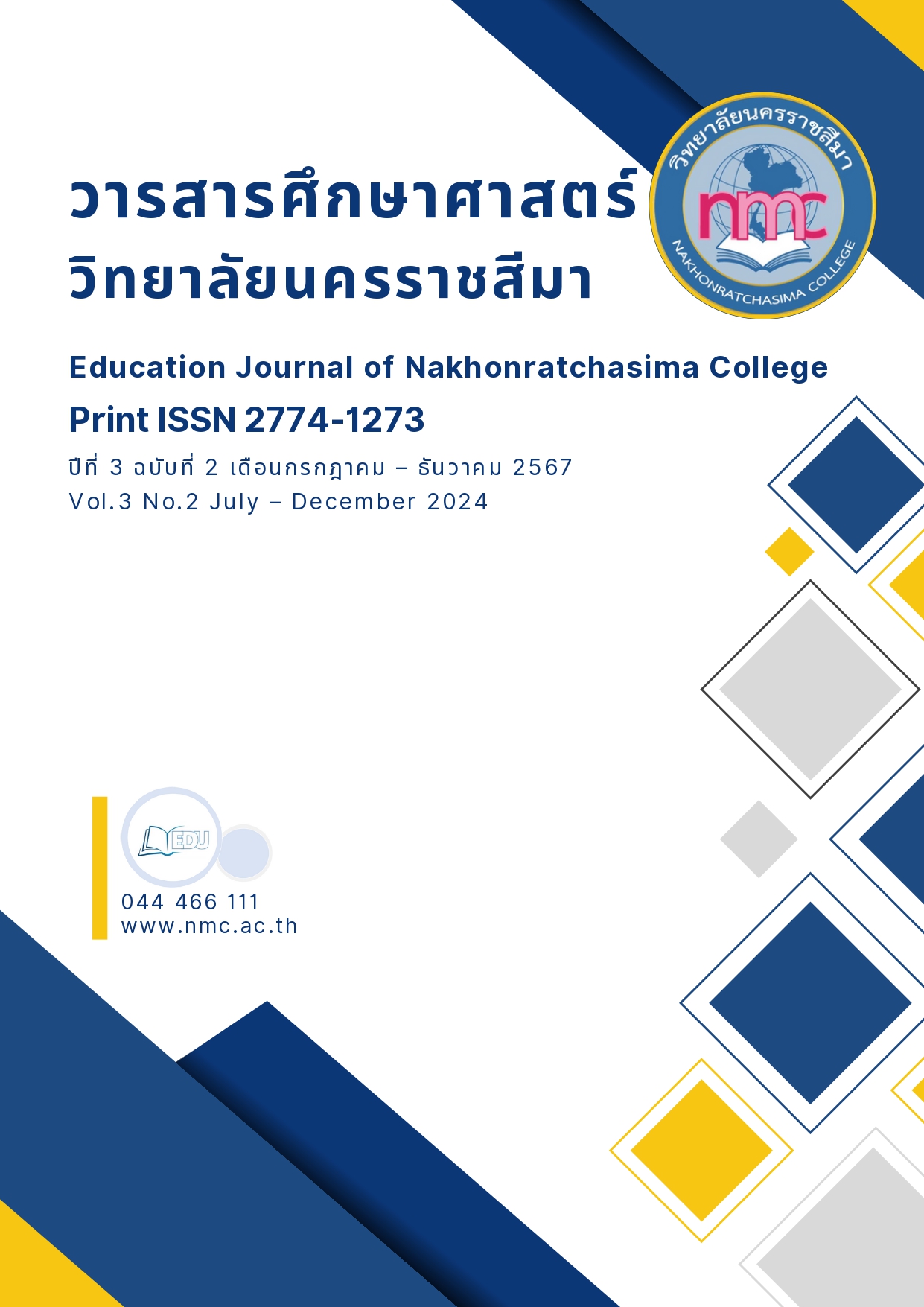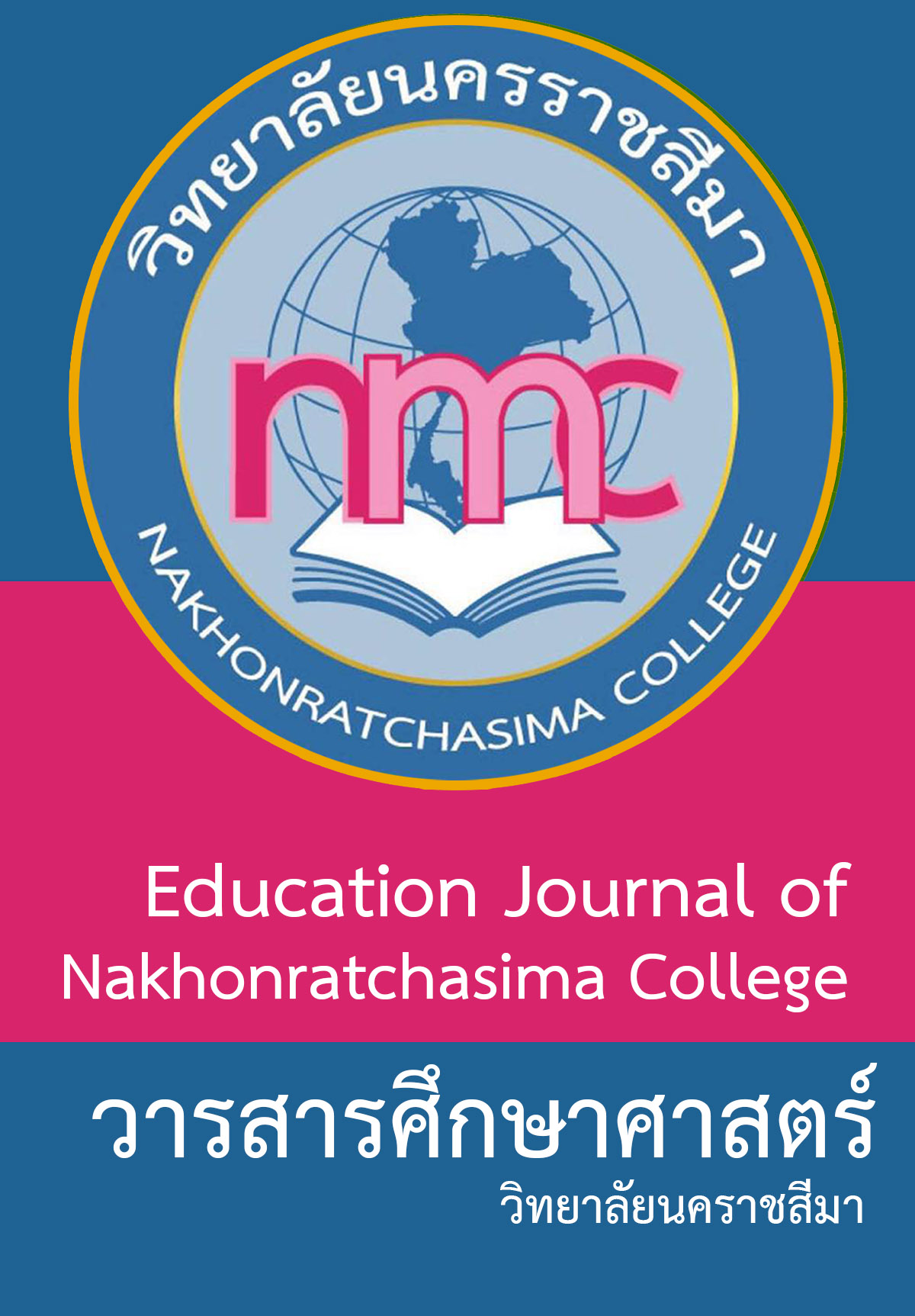The Administrative Skills of school Administrators in the 21st Development of Wang Nam Khiao Sa Mak Kee of the Primary Educational Service Area Office of Nakhon Ratchasima Area 3
Keywords:
The Administrative Skills of school Administrators in the 21st, Division of Educational Quality and Standards Development of, Wang Nam Khiao Sa Mak Kee.Abstract
The objectives of this research were to study and compare The Administrative Skills of school Administrators in the 21st on Division of Educational Quality and Standards Development of Wang Nam Khiao Sa Mak Kee of the Primary Educational Service Area Office of Nakhon Ratchasima Area 3, classified by position and degree. The sample group comprises administrators and teachers from Division of Educational Quality and Standards Development of Wang Nam Khiao Sa Mak Kee of the Primary Educational Service Area Office of Nakhon Ratchasima Area 3, 144 people were assigned the number of samples according to the tables of Krejcie, R.V. & D.W. Morgan and selected through stratified random sampling. A five-level Likert scale questionnaire with an index of conformity between 0.67-1.00 and a questionnaire confidence level of 0.89 were utilized for data collection. Statistical analyses included frequency, percentage, mean, standard deviation and t-test.
The research results found that
- The Administrative Skills of school Administrators in the 21st on Division of Educational Quality and Standards Development of Wang Nam Khiao Sa Mak Kee of the Primary Educational Service Area Office of Nakhon Ratchasima Area 3, overall and each aspect is at a high level.
- Comparison results of The Administrative Skills of school Administrators in the 21st on Division of Educational Quality and Standards Development of Wang Nam Khiao Sa Mak Kee of the Primary Educational Service Area Office of Nakhon Ratchasima Area 3, classified by position and degree. Overall and each aspect are not different.
References
ไกรศร เจียมทอง. (2561). ทักษะของผู้บริหารสถานศึกษาในศตวรรษที่ 21 สังกัดสำนักงานเขตพื้นที่ การศึกษามัธยมศึกษา เขต 32. วิทยานิพนธ์ปริญญามหาบัณฑิต. สาขาวิชาบริหารการศึกษา มหาวิทยาลัยราชภัฏมหาสารคาม.
ชัยยนต์ เพาพาน. (2559). แนวคิดและทฤษฎีพื้นฐานการเป็นผู้นำของผู้บริหารสถานศึกษาในศตวรรษที่ 21. วารสารบริหารการศึกษา มหาวิทยาลัยขอนแก่น, 12(1), 1-9.
บุญชม ศรีสะอาด. (2553). การวิจัยเบื้องต้น. (พิมพ์ครั้งที่ 8). กรุงเทพฯ : สุวีริยาสาส์น.
ไพศาล วรคํา. (2552). การวิจัยทางการศึกษา. กาฬสินธุ์ : ราชภัฎมหาสารคาม ศูนย์กาฬสินธุ์.
มลฤดี สวนดี. (2565). ทักษะของผู้บริหารสถานศึกษาที่ส่งผลต่อการบริหารสถานศึกษาในศตวรรษที่ 21
สังกัดสำนักงานเขตพื้นที่การศึกษาประถมศึกษาจันทบุรี เขต 1. วิทยานิพนธ์ปริญญาครุศาสตรมหา บัณฑิต สาขาวิชาการบริหารการศึกษา คณะครุศาสตร์ มหาวิทยาลัยราชภัฏรำไพพรรณี.
สำนักงานคณะกรรมการการศึกษาขั้นพื้นฐาน. (2553). พระราชบัญญัติการศึกษาแห่งชาติ พ.ศ. 2542 และที่แก้ไขเพิ่มเติม (ฉบับที่3) พ.ศ.2553. กรุงเทพฯ : สำนักนายกรัฐมนตรี.
สำนักงานคณะกรรมการการศึกษาแห่งชาติ. (2543). ผู้บริหารสถานศึกษาต้นแบบ. กรุงเทพฯ : บริษัทพริกหวานกราฟฟิค จำกัด.
สำนักงานเขตพื้นที่การศึกษาประถมศึกษานครราชสีมา เขต 3. (2565). ข้อมูลพื้นฐาน. ได้จาก
https://www.korat3.go.th/. สืบค้นเมื่อ 1 ธันวาคม 2566.
อนุวัฒน์ วิภาคธำรงคุณ. (2565). ทักษะการบริหารของผู้บริหารสถานศึกษาในอำเภอสามโคก สังกัด
สำนักงานเขตพื้นที่การศึกษาประถมศึกษาปทุมธานี เขต 1. Journal of Roi Kaensarn Academi, 7(2), 270.
Cronbach, L. (1990). Essentials of Psychological testing. (5th ed). New York : Harper.
Krejcie, R.V., & D.W. Morgan. (1970). Determining Sample Size for Research Activities. Educational and Psychological Measurement, 30(3), 607–610.
Likert, R. (1967). The Method of Constructing and Attitude Scale. Attitude Theory andMeasurement. 90-95. New York : Wiley & Son.







